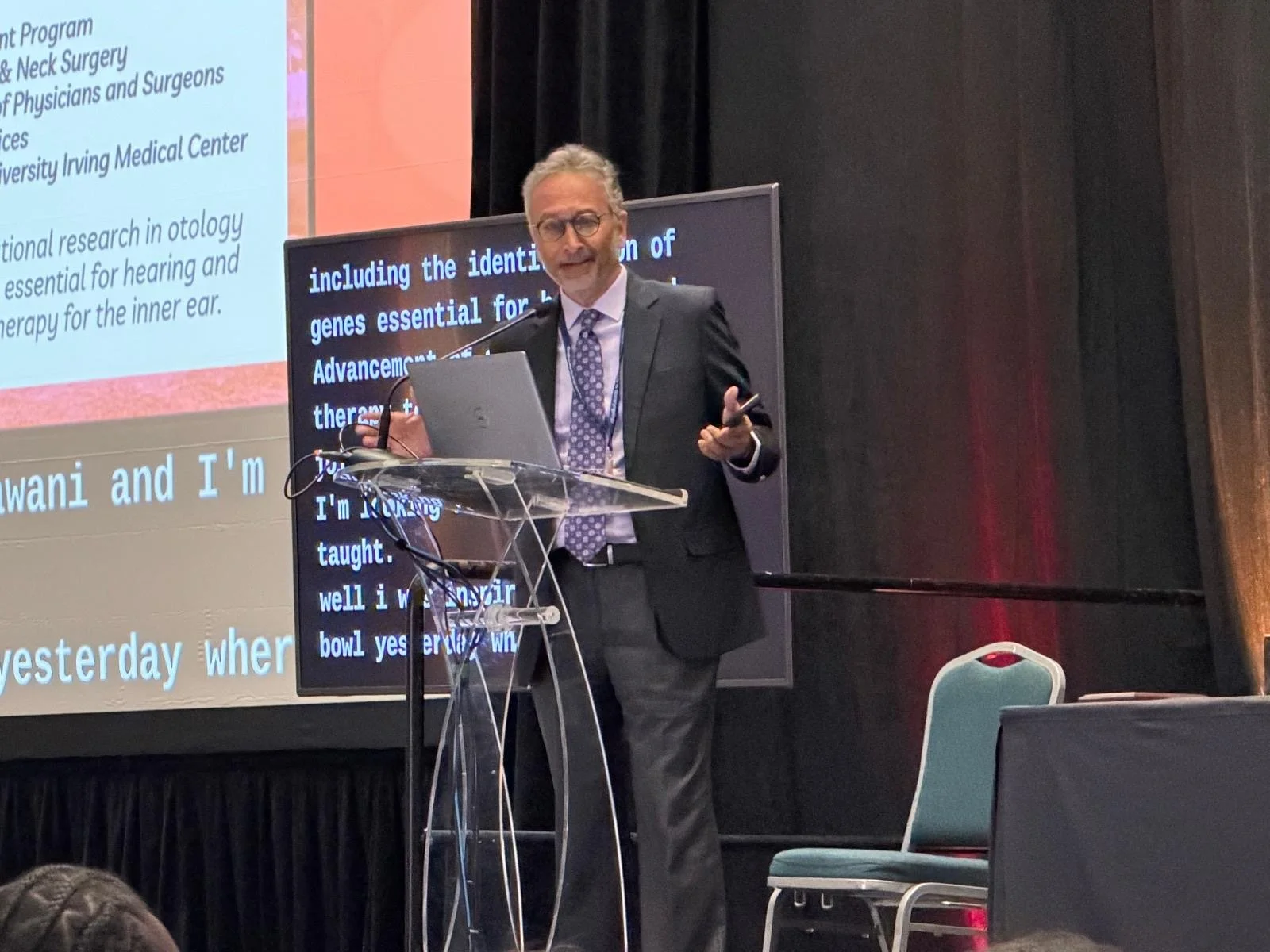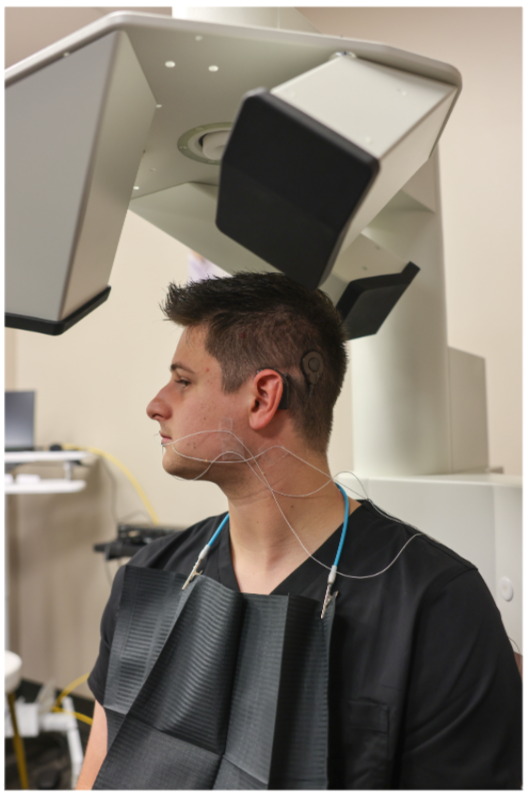By Ariadne Aberin
I recently donated to Hearing Health Foundation (HHF) for the first time. When I came across your organization, I knew I wanted to support it. I’m a musician, and I’m really passionate about research efforts on hearing restoration. I feel like we live in a really noise-polluted world, and as musicians we’re kind of taught that louder is better/more passionate/more fun—which is absolutely not always the case. We do our best to take care of our hearing, but there are also many factors outside of our control.
Ariadne is inspired by Hearing Health Foundation (HHF)’s research, which provides her comfort she may be able to still fully enjoy music later in life.
I’m personally very interested in the science that HHF funds, and honestly having a better idea of what research is being done might go a long way in giving me some comfort that I may be able to enjoy music even in old age.
Music Is Therapy
Music has always been a big part of my life. My family is very musical; we love to sing and play instruments, and it’s one of the ways we spend quality time together. I started out playing the piano and listening to my mom’s old Celine Dion records, and as I got older and developed my own musical tastes (ranging from ’90s boy bands and Britney Spears, to Avril and Alanis, to Taylor Swift and Sara Bareilles, to Lin-Manuel Miranda… the list goes on), I started writing music that really captured what I was feeling.
I’ve always loved books and stories and writing, and songwriting just felt like such a natural way I could express myself using the two art forms I loved. I currently write and record music that’s kind of a chill, pop vibe. And I love writing about things that are really personal to me but also I think are universally relatable—things like feeling euphoric when you meet someone, or lessons learned and realizations from past mistakes, or mental health. I also write music with other artists that they then record or that we record together. It’s been so fun getting to continue developing my skills as a musician and songwriter, and just getting to meet other songwriters and musicians who are on their own journeys as well.
For me, the most important part of music is the journey. The real fun is in those little everyday habits—practicing your instrument each day, writing a little bit each day, listening and discovering new artists. I think the more you focus on the journey and your own personal growth, it’s even more rewarding when you look back and see how far you’ve actually come. And as musicians, music is first and foremost a therapy of sorts. It’s the way we process and express our feelings; it’s where we feel most at home. And so the best part of being a musician is just getting to do it!
Discovering Hearing Loss Research
I first came across Hearing Health Foundation because I had been looking into research done on hearing health, and ways that hearing health awareness is spread. The older I’ve gotten, I’ve realized that we really don’t talk about hearing health enough, and the solutions that are currently out there aren’t always enough. I was really excited to come across HHF because of the amazing work they do, both on the research side and on the awareness side. I love that HHF advocates for normalizing things like wearing earplugs to loud events, concerts, and movie theaters. I’d love to see these venues offer hearing protection for their patrons, or even start using safer volumes during their events. The work that HHF is doing makes me hopeful that hearing health will be something more venues and businesses keep in mind, and something that more research is devoted to.
And as a musician, I certainly hope that we normalize hearing health within our community as well. Earplugs should be a staple in every musician’s arsenal, and there are plenty of apps available that measure the decibel levels in your environment—you can use these to ensure that when you’re playing, you don’t exceed safe sound levels. You can still get really into the music when playing it at safe levels.
Louder Isn’t Always Better
Playing louder does not always mean passionate or better. It’s important we redefine what it means to play with passion and emotion, and that playing with passion and emotion can still be done at safe sound levels. Practice performing with ear protection, get accustomed to the sound of your voice with musicians earplugs in. Wearing earplugs protects your voice, too! You tend to hear your voice louder with earplugs in—so you’re more likely to sing with a lot less effort.
There’s so much more we could be doing to protect our hearing, and we often don’t realize how much we’re surrounded by loud sounds even in everyday life. So I’m really happy to support HHF and their campaigns and research—hearing keeps us all connected, it allows us to do what we love—so it is worth protecting.
I love HHF’s “Keep Listening” campaign that just launched. It’s very accessible for young people, especially because the adjustments are so simple—foam earplugs and turning down the volume definitely go a long way in preserving your hearing health, and they’re such easy, inexpensive things to do.
One thing I wish I knew earlier was how to properly insert earplugs as well as other options for ear protection if standard foam earplugs are uncomfortable. A lot of folks with smaller ear canals tend to have trouble finding options for ear protection that feel comfortable and stay in place.
Whenever I wear earplugs, they tend to stick out from my ear even though they’ve gone in as deep as they can—and since they stick out a bit, I have to keep adjusting them so they stay in place and can keep doing their job of protecting my ears. Being made aware of the different options for ear protection, as well as the proper fit for ear protection, would be really helpful for us small-eared folks!
Young people can also be hesitant to seek help for hearing loss because of the stigma associated with it, so I really appreciate the work your organization is doing to dispel the stigma. Especially for musicians, a big fear with hearing aids is that they won’t sound the same as natural hearing, and if you’re a singer, you would need to almost retrain your brain to recognize your voice in a different way, since you’d hear your voice differently through a hearing aid.
I will continue donating to HHF to help fund research for hearing restoration. I am happy to continue to support this organization and its research efforts, and I really hope that in the near future, we get much closer to a solution to restore hearing.
Ariadne Aberin is a musician in Texas. Find her listed as Ariadne Mila on Spotify, Instagram @ariadne.mila, and Linktree.








Our new public service announcement “Let’s Listen Smart” recognizes that life is loud—and it’s also fun. And the last thing we want to do is stop having fun! We just need to listen responsibly.